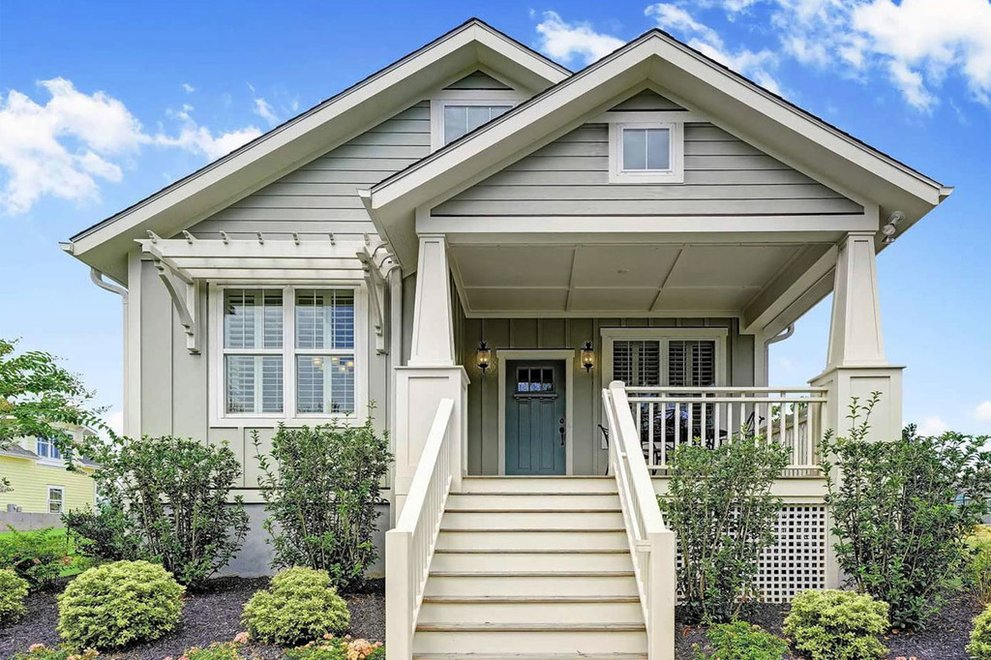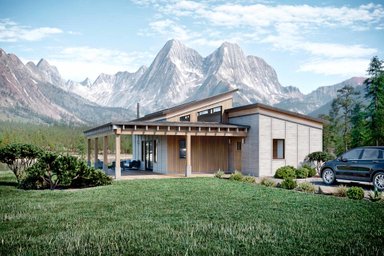By Boyce Thompson
The most important decision you make when building a new home – besides picking the ideal house plan – is selecting your builder. Nothing can make or break the experience like the builder you choose. Some people spend years cursing a builder who cut corners or cost them a fortune. But many people feel like they’ve made an important friend for life. Here’s some advice that will increase your odds of a happy ending.
The weather is heating up and it's time to start building your home. Give us a call at 1-800-913-2350 today or contact us here.
Get Your House in Order
Eventually, you will ask three or four builders to give you construction bids. But before you can do that, you need to understand the scope of the project. Many plans come with material lists and structural framing plans that builders will use to make estimates. If you don’t have them, you could have a building material dealer or engineer create a material list from the blueprints; that way you’ll be comparing apples to apples in bids. Even so, most plans do not include an HVAC or electrical plan. Separate subcontractors must be hired to do that work, either by you or the builder.
 Plan 461-55
Plan 461-55
You’ll need someone’s assistance – whether a builder, designer, or supplier – to develop finish details for the kitchens and bathroom. The level of wet-room finish detail can be a big variable in a builder’s bid. It needs to be clear what you expect. Before kitchen or bathroom can be finished, for instance, plumbers and electricians bring in pipes and cables that are often left exposed. Then the builder or his framing crew line the walls and put down the subflooring. After that, a supplier usually installs cabinets, appliances, fixtures, and other finishes. Who is going to connect these items to the pipes and wires in the room – the builder or the finish supplier?
Find a Custom Builder
For a house plan project, you probably don’t want to hire a production builder who primarily builds homes of the same design over and over again. Instead, you want a builder who can build from architectural plans, which is a different skill set. A good custom builder hews closely to the designer’s intent, fill in missing details with a similar aesthetic. A bad builder will go off book whenever possible, looking for opportunities to substitute less-expensive material and design details with which he’s most familiar. A builder’s design sensitivity is especially important because house plans don’t specify finish materials such as paint and carpeting.
 Plan 929-1074
Plan 929-1074
You may be able to find a custom builder who has built a home from a house plan before. Some bigger house plan designers will furnish the names of builders who have built their plans. That experience can be a big asset because each designer has his own way of detailing plans. Designers also tend to rely on the same design and construction techniques across their plan portfolio. A builder who has built a Don Gardner plan before will have a big leg up when building another one.
Consider Hiring a Builder Early in the Process
Building a house from a plan requires a lot of time and expertise. Some people hire a builder before they even buy a house plan. That way they can use the builder’s expertise to review potential plans for the cost of construction. They may even have the builder run interference with the building department and the bank. They ask the builder to work with an engineer to get the plans stamped for approval. This kind of assistance is rarely free. And if you begin working with a builder before you select a house plan, it may be difficult to get the sharpest construction bid.
Do Some Internet Research
Most builders these days have a web site to showcase their work. They are worth checking out. Make sure they build in a style that’s right for the design of your home. The builder of traditional homes may not have the expertise or sensibility to build a contemporary home that highlights rather than hides construction details. While you are on your computer, check to see whether customers have registered complaints against builders in chat boards. The most common complaints, of course, will be that the builder went over-budget, didn’t build the house as designed, failed to fix his mistakes, and didn’t come back in a timely basis to finish.
Check with Previous Clients
Once you develop a short list of builders, touch based with their previous clients. Don’t settle with the names of a few clients; they are likely to be the most satisfied. Get a longer list and call them at random. Ask whether they would work with the builder again. Ask what they would change about the process. Ask them whether there’s anything in particular that you should watch for. Find out how the builder involved them in key decisions, like how to vent the attic or soundproof the great room.
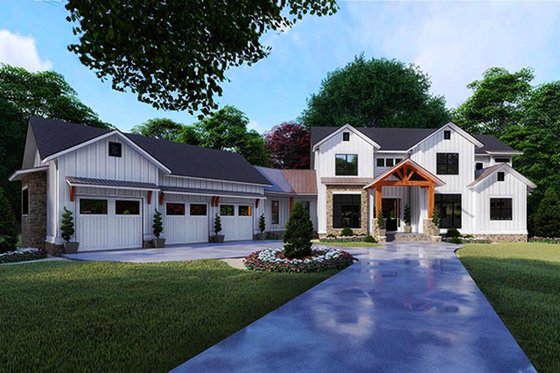 Plan 923-119
Plan 923-119
When it comes to comparing builders, there’s a big trade off between timeliness and price. A bigger builder may charge more, but he may also have the systems in place to produce a better house in a timelier fashion. That can matter if you are paying interest on a construction loan. A smaller builder working out of his truck may not have the back up support to work as quickly, but he may do a better job monitoring construction quality.
Make Sure Communication Is in Sync
If a builder takes too long to return your initial phone call, that’s not a good sign. The best builders not only respond promptly but listen carefully to your needs and desires. They use that information to make decisions during the construction, saving you time and hassle. The other extreme is a builder who sends multiple emails every day, sometimes about things you’ve already decided. This kind of attention can get old quickly.
What you really need is a paper, or digital trail of key decisions and changes to your initial contract agreement that you can refer to after the fact. It’s easy to forget what you agreed to orally. Bigger builders often communicate through an Internet portal – and maybe even give you a passcode. That way you can each refer back to key decisions like picking cabinets and deviating from blueprints. Other builders may have you sign a change-order notice when there’s a major change in plans. Otherwise you may forget about the change and may wind up getting angry when the builder asks for money at the end of the project.
Figure Out What Makes a Builder Tick
Builders tend to have passions that turn into business missions. Some really care about building the most energy-efficient home possible. That’s good for you because they’ll be doing a lot of important work that you may not see or understand. Others pride themselves on really taking care of the customer or coming in on budget. That’s great if you are on a tight budget. Others will make it clear that they put doing the best possible job on design and finish work before anything else. It’s difficult to find a builder who excels at all three. Figure out what your priorities are and select a builder who is the right match.
Perform Background Checks
Mark Hodges, a consultant to builders who used to build homes himself, recommends visiting a builder’s job site. This is the best way to check on the quality of cabinetry, paint, and trim work. “I'd visit their homes a few times unescorted before selecting the builder. That way you can see how they manage quality, cleanliness, and site conditions. I would also interview any trades in the homes.” Trades work with many builders. They know which ones refuse to settle for inferior work, which ones have a true commitment to energy efficiency.
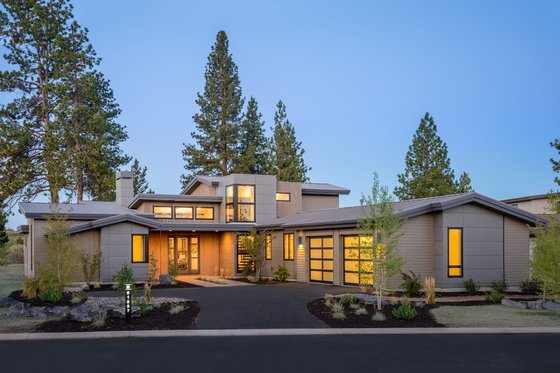 Plan 892-10
Plan 892-10
The building department in the town where you plan to build can be another good source of information, says Hodges. Building officials may be able tell you a lot about the quality of the builder’s work, particularly inspectors who visit a lot of building sites around town. Permit officials will know whether the builder is easy or difficult to work with. “I may even ask the builder where they've built and contact the building officials in those towns. You can get great information that way.”
Understand Key Contract Provisions
Every builder has a process that they follow to build a home. Make sure clearly define and explain the process to you. Then detail that process in the contract. Make sure the contract clearly defines the construction plans and specifications. It should state the price that you agreed to pay for the house and describe how the cost of changes will be determined. It needs to state when the house will be started and completed. Attach project drawings and schedules to the contract. The best-case scenario is when the contract contains a complete list of products used to build the home, detailed down to the finish on hardware.
One important contract concern is how to handle final inspections. They can be a major source of friction. The builder is eager to finish the home, and you are eager to move in. The best case is when you and the builder perform an inspection together and agree on one comprehensive list with a deadline. The builder will need to coordinate multiple subs to make sure everything is fixed to your satisfaction.
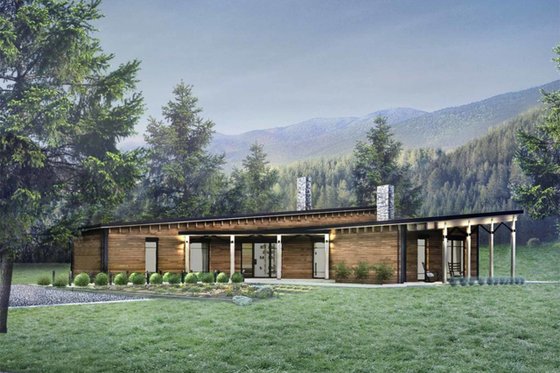
Make no mistake: Builders can make or break a home-building project. They can deliver the home of your dreams, on time and on budget. They can do that by having your back at every turn, helping you make key decisions, and hiding nothing. But this rarely happens by accident. Take time to develop a firm understanding of the scope of the project. Then do the due diligence so that you hire the right builder in the first place.
Plan on building your dream home? Download our beginner's guide today.
Want to stay in the know? Sign up for our newsletter.
Are you a builder? Join our Builder Advantage Club (for free!).
